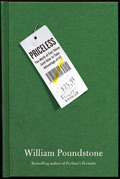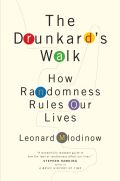It’s been a while since I posted anything about the girls, so I thought I’d throw up a few pictures I’ve taken during “carnival season 2010.” About this time of year the local churches and municipalities call in carnival companies employing people with more cigarettes in their mouthes than teeth to run rickety rides. The girls love it, of course, so we usually hit up a couple. There’s also some father’s day pics in there.
It’s worth calling out a few of the pictures below. This year Sam informed us that she wanted to go up on the tallest, scariest ride in the joint, which was this tower structure that took you up quite a ways before letting you free fall for a second or two on your way back down. Sam bravely strapped herself in, and I captures some of her reactions photographically. This is how she looked going up, this was captured during free fall on the way down, and this is the expression she walked around with for about half an hour afterwords.
She’s a little thrill seeker, I think.
Mandy, by the way, won second place in the coloring contest she’s seen working on here. None of us knows exactly what she’s won yet (we have to pick it up tomorrow), but whatever it is, Sam is absolutely, positively sure that she wants it.


















 I’ve always been interested in the psychology of consumerism, along with related topics like marketing and purchasing behaviors. Both for how shameless it is and how readily we (myself included) seem to fall for what really amount to simple psychological slight of hand. Priceless: The Myth of Fair Value (And How to Take Advantage of It) by William Poundstone looked like it was going to scratch that itch, and while it does to some extent I’m left a little off balance by the book.
I’ve always been interested in the psychology of consumerism, along with related topics like marketing and purchasing behaviors. Both for how shameless it is and how readily we (myself included) seem to fall for what really amount to simple psychological slight of hand. Priceless: The Myth of Fair Value (And How to Take Advantage of It) by William Poundstone looked like it was going to scratch that itch, and while it does to some extent I’m left a little off balance by the book. Yeah, that’s right. A book about probability theory. And actually, it’s not bad if you can either shrug off or endure a bit of lecturing on basic mathematics and statistics. Author Leonard Mlodinow sets out to review the history of probability, starting with the ancient Greeks and following the field’s evolution and application. Mlodinow has a pretty good style, keeping things relatively low level so that anyone with a high school education in math can probably follow along. He also peppers the narrative with jokes and asides to break up the otherwise less-than-fluffy subject matter. And it works pretty well, though I suspect the lengthy discussion of the normal curve might have lost me if I hadn’t already had all that info drilled into me in graduate school.
Yeah, that’s right. A book about probability theory. And actually, it’s not bad if you can either shrug off or endure a bit of lecturing on basic mathematics and statistics. Author Leonard Mlodinow sets out to review the history of probability, starting with the ancient Greeks and following the field’s evolution and application. Mlodinow has a pretty good style, keeping things relatively low level so that anyone with a high school education in math can probably follow along. He also peppers the narrative with jokes and asides to break up the otherwise less-than-fluffy subject matter. And it works pretty well, though I suspect the lengthy discussion of the normal curve might have lost me if I hadn’t already had all that info drilled into me in graduate school.